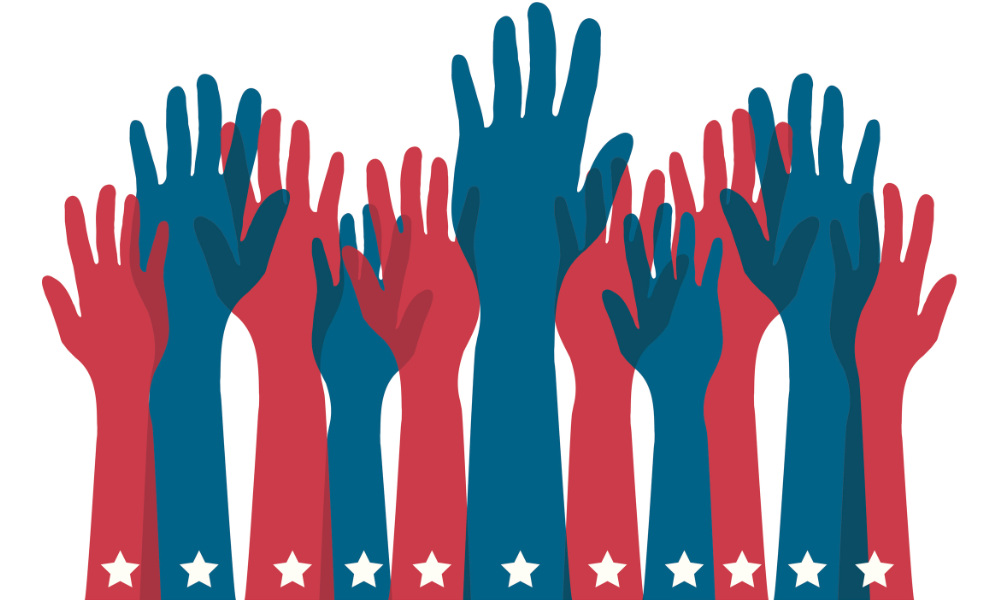Fators-impacting-American-Democracy
What factors affect how easily a policy is passed?
“An imbalance between rich and poor is the oldest and most fatal ailment of all republics.” - Greek historian Plutarch
Humanity has transitioned from agriculture to industry, from feudalism to capitalism, yet the one thing that has not changed is inequality. It appears that, just as it was two thousand years ago, inequality still is “the oldest and most fatal ailment of all republics”.
Results from our data analysis: Contrary to the expected result, after comparing social groups differentiated by education level, race, political affiliation, religious affiliation, and income percentile we discovered that the only social group in the US with a statistically significant impact on policy outcome was the top 10% of income earners.

Additionally, it is also interesting that economic policies and foreign policies are more likely to pass. We believe that this is due to the smaller degree of political polarization around these policies. Conversely, the reduced level of political polarization may result in less media attention being given to certain policies. It is therefore crucial for an attentive public to remain alert to important policies that may not receive the media coverage they deserve, in order to effectively participate in the democratic process.

Content
- Context
- Target Effect and Explanation
- Unexpected Results from the Dataset and Surprisingness
- Summary
- References

ℹ️ Context
In light of the erosion to American democracy in recent decades, from the decline in transparency of government agencies to the deterioration of trust in the federal government (Fitzgerald, 2022), our project seeks to examine the robustness of American democracy and shed light on the factors that influence the political process. Our research question, stated simply, is this: what factors affect how easily a policy is passed? This is a question that the American public should be concerned with, since the ideals of liberty and democracy are core to the American identity, and Americans need to stay vigilant and cognizant of the state of their political system. Else, they run the risk of having this slogan
“War is Peace; Freedom is Slavery; Ignorance is Strength”
turn from fiction into reality.
🌏 Data - What is it & Where to obtain
Our data comes from the Russel Sage Foundation. The dataset comprises more than 2,000 survey questions concerning proposed policy alterations, spanning from 1964 to 2006. It delves into various policy preferences, encompassing topics such as increasing the minimum wage, imposing abortion restrictions, and deploying troops to Bosnia. The dataset examines the level of support for each proposal across groups of varying interest and characteristics and subsequently records actual policy outcomes. We have included our dataset (in SPSS file format).
The link to our dataset: https://www.russellsage.org/datasets/economic-inequality-and- political-representation

📍Target Effect and Explanation
Target Effect
The target effect we are studying is how the support rates of different groups impact how easily a policy is passed. We studied the support rates of social groups differentiated by
- Education Level
- Race
- Political Affiliation
- Religious Affiliation
- Income Percentile
- The number of interest groups that supported or opposed a policy.
We also studied whether or not the domain of a policy influenced how easily it would pass.

Expected Explanation
America is a representative democracy with universal suffrage. Regardless of race, religion, or income, everybody’s vote is equal. Therefore, it should be expected that larger groups have a greater impact on policy outcome. For example, given that the number of average Americans greatly exceeds the number of elites, it is anticipated that the former’s viewpoint would wield more influence on policy outcomes than the latter’s, thereby making it a significant factor to consider.
🌟 Unexpected Results from the Dataset and Surprisingness
Contrary to the expected result, after comparing social groups differentiated by education level, race, political affiliation, religious affiliation, and income percentile we discovered that the only social group in the US with a statistically significant impact on policy outcome was the top 10% of income earners.
📑 Further Research into Specific Policy Types
To deepen our understanding of the impact of the economic elite on policy making, we decided to look into the significant variables affecting economic policy, social welfare policy, and foreign policy.
![]()
💰 Economic Policy
Very counterintuitively, the trend is that the greater the number of interest groups who somewhat oppose the policy, the higher the chance of the policy passing. Our group does not have a good explanation for this observation. However, it should also be noted that this graph is misleading since there are actually very few observations at the right extremity of the graph. For example, there is only one case respectively where there are 22 and 24 interest groups somewhat opposing a policy, while there are over 200 cases when 0 interest groups somewhat oppose a policy. @HJK more data needed.
🏡 Social Walfare
We repeat the process of fitting a multiple linear regression to social welfare policies and then running a Benjamini-Hochberg test on the p-values to determine the statistical significance of predictor variables. Our process did not return any significant variables. The impact of the economic elite on the policy process disappeared.
🏢 Foreign Policy 🏢
We perform a multiple linear regression followed by the Benjamini-Hochberg method to identify significant variables. We find that the influence of the economic elite also disappears in the foreign policy domain.
📄 Analysis of the finding’s significance

Our findings are significant because they challenge the ideal of equal representation and fair access to political power. Both of these are absolutely central to a truly functional democracy. The suggestion that those with more wealth and influence have a disproportionate amount of control over the political system, potentially leading to policies and decisions that primarily benefit the interests of the wealthy at the expense of the general population, discredit the legitimacy of the American form of government, which prides itself on liberty and democracy. A democracy where essentially only the privileged get to vote is not a true democracy. The disproportionate influence of elites on policy outcomes can also perpetuate systemic inequalities and in the long run limit opportunities for marginalized groups to have their voices heard and their needs addressed. Therefore, understanding and addressing these issues is critical for promoting a more just and equitable society that adheres to America’s core values.
📎 Summary
For the American public, the main findings of our project should serve as a warning to stay vigilant about the corrupting influence of money in politics. General awareness about the role money plays in politics is a necessary prerequisite before concerted action. To build a more perfect Union, Americans must continuously evaluate the effectiveness of their institutions in accurately representing their interests. A democracy that represents only the interests of the few is not a democracy.
Additionally, it is also interesting that economic policies and foreign policies are more likely to pass. We believe that this is due to the smaller degree of political polarization around these policies. Conversely, the reduced level of political polarization may result in less media attention being given to certain policies. It is therefore crucial for an attentive public to remain alert to important policies that may not receive the media coverage they deserve, in order to effectively participate in the democratic process.
References
- Buchholz, K. (2021, August 31). Statista. Retrieved from The Top 10 Percent Own 70 Percent of U.S. Wealth: https://www.statista.com/chart/19635/wealth-distribution-percentiles-in-the-us/#:~:text=As%20of%20Q1%20of%202021%2C%20the%20top%2010,percent%20held%20approximately%20another%20half%20at%2037.7%20percent.
- Fitzgerald, M. (2022, October 11). USNews. Retrieved from Trust in the Federal Government Falls Below a Majority for the First Time: https://www.usnews.com/news/national-news/articles/2022-10-11/trust-in-the-federal-government-falls-below-a-majority-for-the-first-time#:~:text=The%20majority%20of%20Americans%20lack%20trust%20in%20all,gaps%20in%20the%20perception%20of%20the%20federal%20g
- Hua, C. (2023, April 19). Harvard Political Review. Retrieved from Campaign Finance: How did Money Influence 2020 U.S. Senate Elections?: https://harvardpolitics.com/campaign-finance-how-did-money-influence-2020-u-s-senate-elections/
- Miller, E. (2020, November 20). Despite some big losses, top spenders won 88 percent of 2020 races. Retrieved from Open Secrets: following the money in politics: https://www.opensecrets.org/news/2020/11/top-spenders-won-88-percent-of-2020-races/
- Open Secrets. (n.d.). Cost of Election. Retrieved from Open Secrets: following the money in politics: https://www.opensecrets.org/elections-overview/cost-of-election?cycle=2020&display=T&infl=Y
- Shapiro, I. (2019, October 24). Lecture 10: Money in Politics. Retrieved from Power and Politics in Today’s World: https://www.youtube.com/watch?v=IRsOEb2-MtE&list=PLh9mgdi4rNeyViG2ar68jkgEi4y6doNZy&index=10&t=2835s